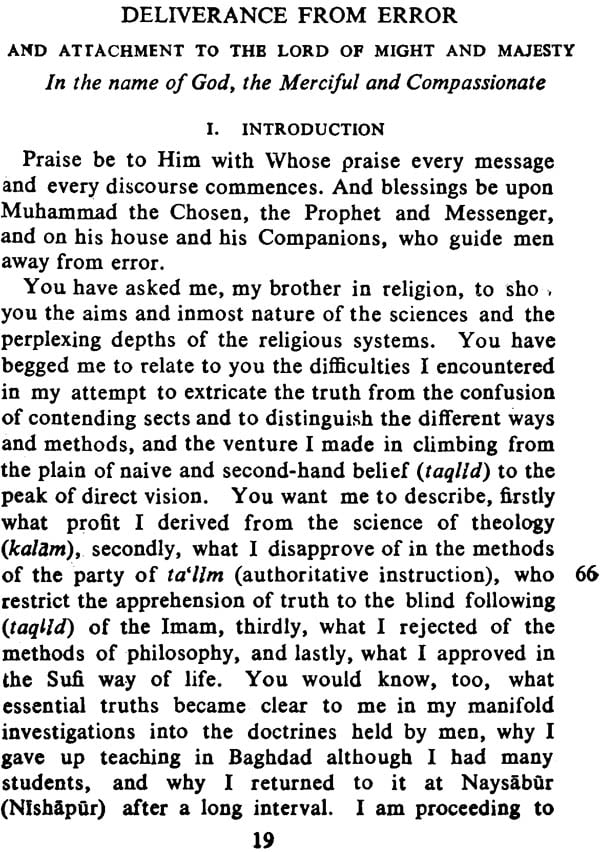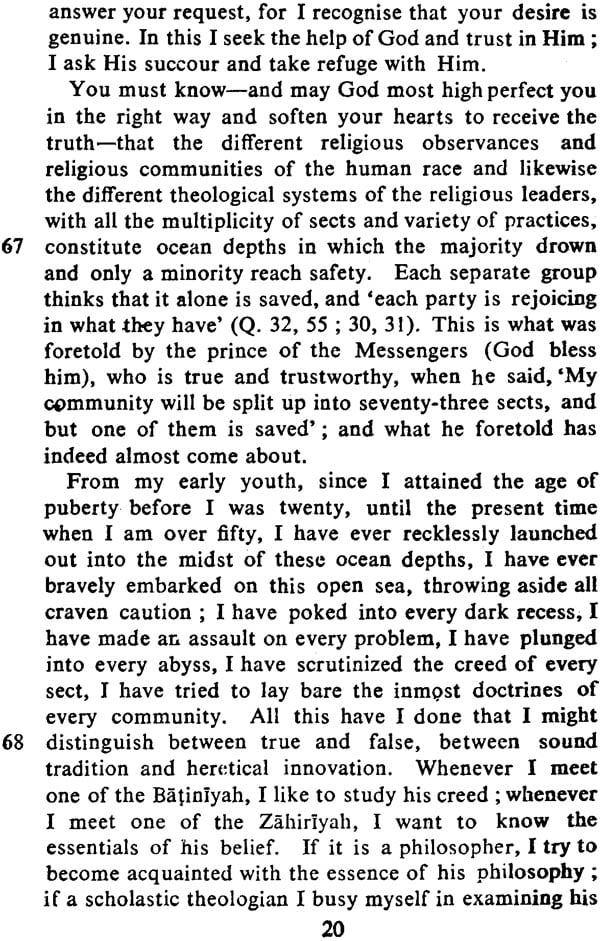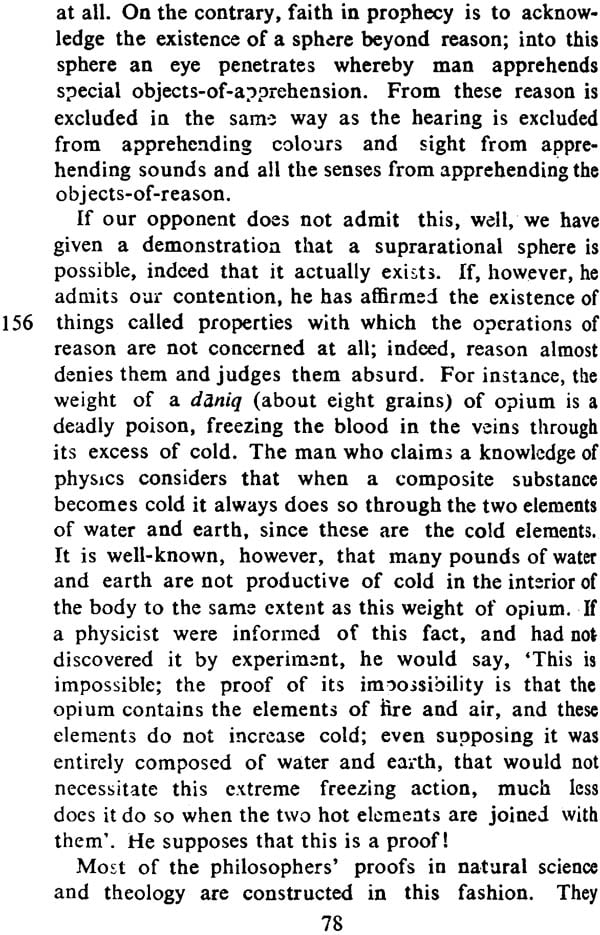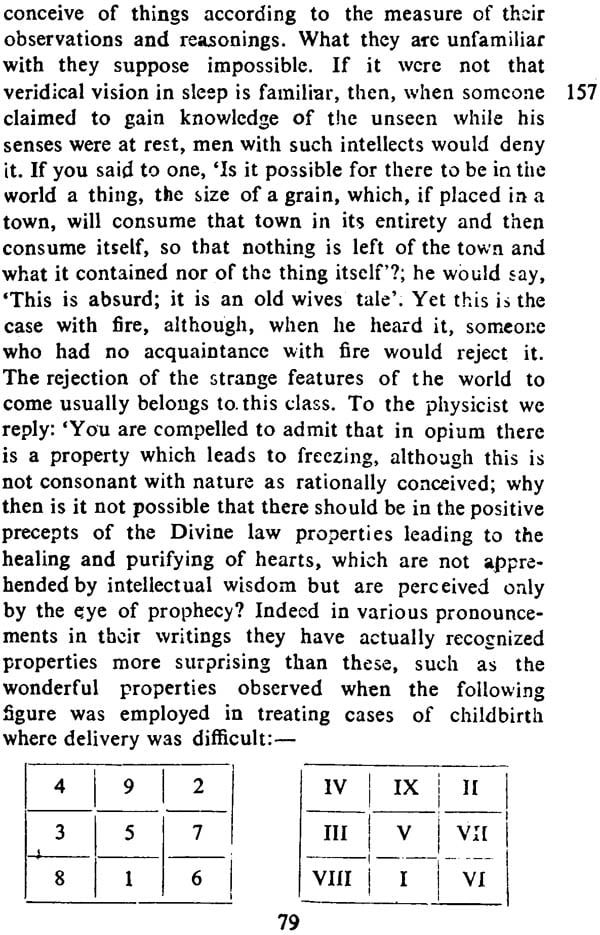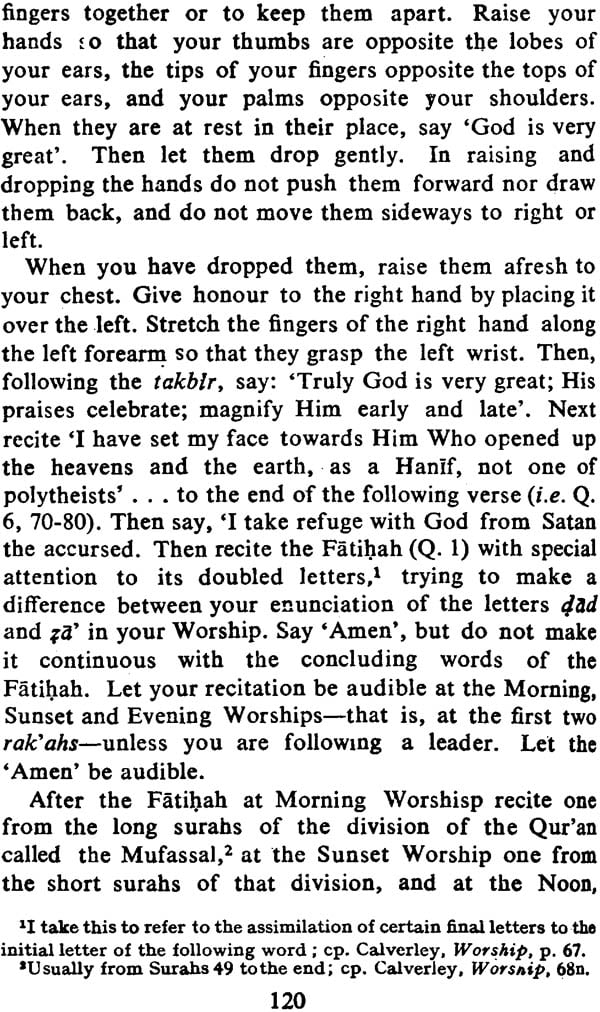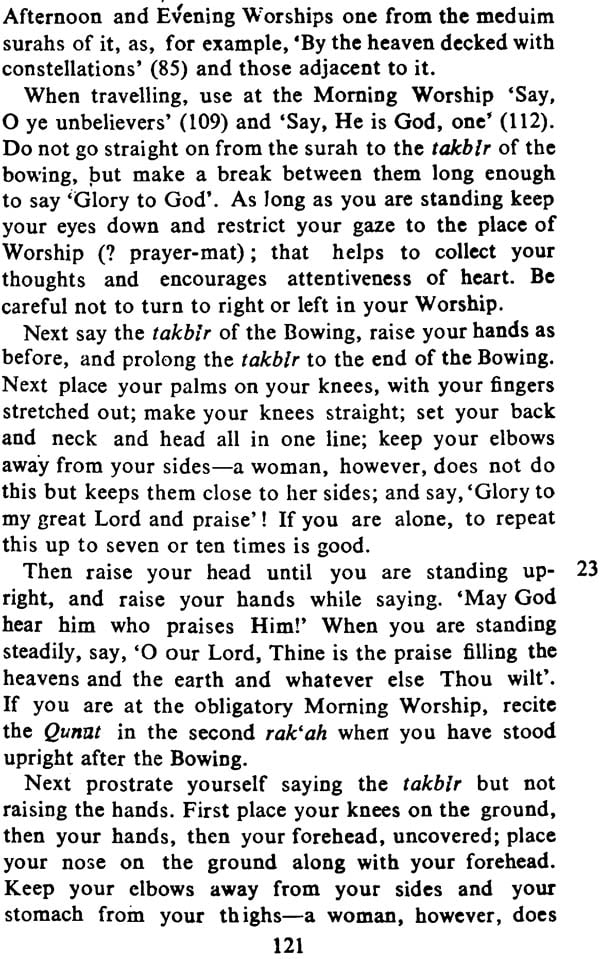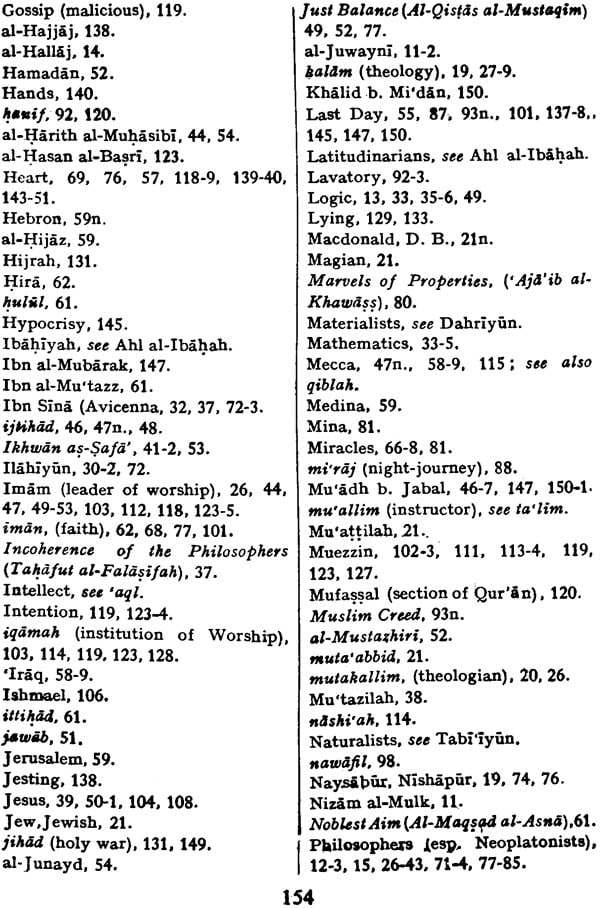
The Faith and Practice of Al-Ghazali
Book Specification
| Item Code: | NAH086 |
| Author: | W. Montgomery Watt |
| Publisher: | Kitab Bhavan |
| Language: | English |
| Edition: | 2014 |
| ISBN: | 9798171512232 |
| Pages: | 155 |
| Cover: | Paperback |
| Other Details | 7.0 inch x 4.5 inch |
| Weight | 150 gm |
Book Description
Abu Hamid Muhammad al-Ghazali was born at Tus in Persia in 450 A.H. (lOS8 A.D.). His father died when he was quite young, but the guardian saw to it that this 'lad o' pairts' and his brother received a good education. After the young Ghazali had spent some years of study under the greatest theologian of the age, al-Juwayni, Imam al-Haramayn, his outstanding intellectual gifts were noted by Nizam al-Mulk, the all-powerful vizier of the Turkish sultan who ruled the' Abbasid caliphate of Baghdad, and he appointed him professor at the university he had founded in the capital. Thus at the age of thirty-three he had attained to one of the most distinguished positions in the academic world of his day.
Four years later, however, be had to meet a crisis; it had physical symptoms but it was primarily religious. He came to feel that the one thing that mattered was avoidance of Hell and attainment of Paradise, and he saw 'that his present way of life was too worldly to have any hope of eternal reward. After a severe inner struggle he left Baghdad to take up the life of a wandering ascetic. Though later he returned to the task of teaching, the change that occurred in him at this crisis was permanent. He was now a religious man, not just a worldly teacher of religious sciences. He died at Tus in 505 (1111).
The first of the books here translated, Deliverance from Error (literally, 'What delivers from error'-al-Munqidh min-ad-dalal), is the source for much of what we know about al-Ghazali's life. It is autobiographical, yet not exactly an autobiography. It presents us with an intellectual analysis of his spiritual growth, and also offers arguments in defence of the view that there is a form of human apprehension higher than rational apprehension, namely, that of the prophet when God reveals truths to him. Moreover close study shows that al-Ghazall does not always observe strict chronology, but has schematized his description of his intellectual development. Al-Ghazali introduces his discussions in a manner reminiscent of Descartes. The 'bonds of mere authority' ceased to hold him, as they ceased to hold the father of modern European philosophy. Looking for 'necessary' truths al-Ghazali came, like Descartes, to doubt the infallibility of sense-perception, and to rest his philosophy rather on principles which are intuitively certain. With this in mind al-Ghazali divided the various 'seekers' after truth into the four distinct groups of Theologians, Philosophers, Authoritarians and Mystics.
| General Introductions | 5 | |
| Translator's Note | 9 | |
| Introduction | 11 | |
| Deliverance from Error and Attachment to The Lord of Might and Majesty | 19 | |
| 1 | Introduction | 19 |
| 2 | Preliminaries: Scepticism and Denial of All Knowledge | 22 |
| 3 | The Classes of Seekers | 26 |
| 4 | The True Nature of Prophecy and the Compelling Need of all Creation for it | 63 |
| 5 | The Reason for Teaching again after my Withdrawal from it | 68 |
| The Beginning of Guidance | 86 | |
| Part I Acts Obedience | 90 | |
| Part II The Avoidance of Sins | 131 | |
| Index | 153 |
